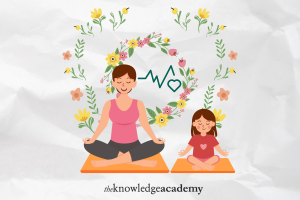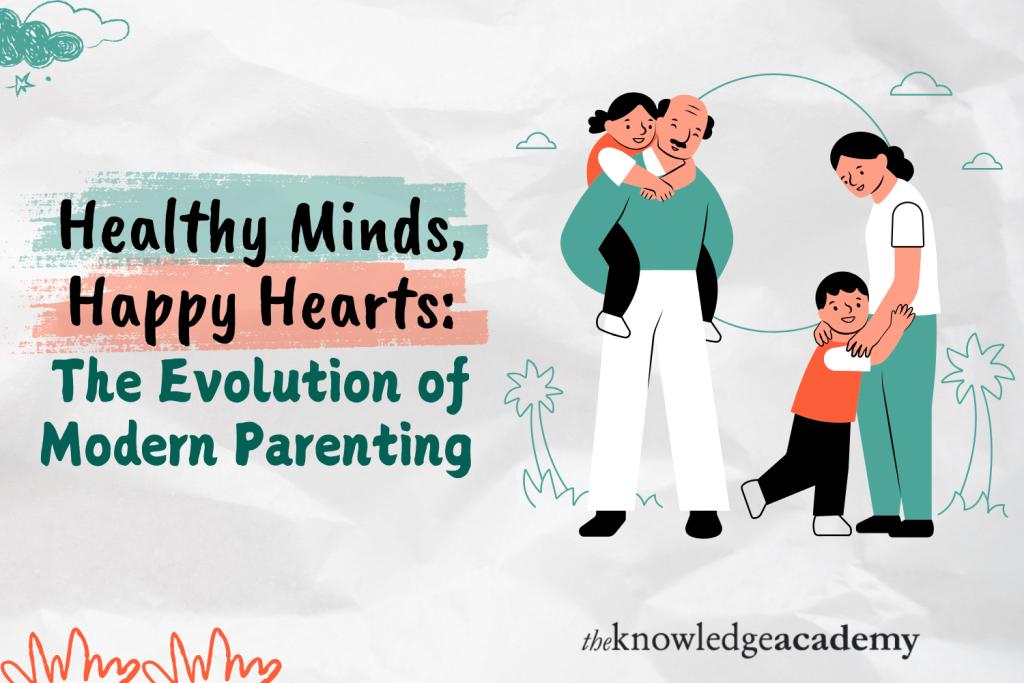“Children are not things to be moulded, but people to be unfolded.” Jess Lair
Have you ever wondered how much parenting has changed over the years? Being a parent is always a great trip with ups and downs. However, modern parenting has changed remarkably due to cultural changes, scientific developments, and rising mental and emotional wellness consciousness. Parents are looking for Child Psychology Courses and insights into Child Development more and more today to understand the demands of their children better and create a loving home. From mental health to emotional resilience, these options provide parents with the information to handle the complexity of contemporary parenting.
Let’s discuss how parenting has changed and what lessons we may learn from these developments to help make healthier minds and happier hearts.
The Changing Landscape of Parenting: Then vs Now
Parenting in past centuries centred on discipline and power. Children were supposed to follow without question, and parents were considered figures of control. The main objective of parenting was to ensure kids followed social conventions. Of course, love and caring existed, but they were less likely to be freely expressed in the ways that modern families give top priority.
By contrast, modern parents focus on encouraging cooperation and empathy. Young children are acknowledged as people with different needs, personalities, and emotions. Modern parents stress the need to build honest lines of contact and a relationship whereby the parent and child develop together. This change is about strengthening closer emotional ties and advancing mutual respect, not only about lowering conflict.
From Discipline to Dialogue: A Shift in Parenting Philosophy
The shift from rigorous discipline to productive communication marks one of the most significant developments in parenting. In ancient times, discipline was sometimes confused with punishment. Parents disciplined behaviour with solid authority-emphasising actions. But as our knowledge of human psychology grew, this method started to yield to one emphasising empathy and education.
Parents today are more likely to resolve problems through meaningful communication. Modern parents should involve their children in a conversation about the causes of their behaviour and the results of their decisions rather than penalising them for violating a rule. This method not only fosters confidence but also imparts important life lessons to youngsters such as emotional control, responsibility, and problem-solving.
The Rise of Mental Health Awareness: Parenting in Focus

Mental health was hardly given any thought in the past when parenting. Children were supposed to just “get over it,” and emotional difficulties were sometimes written off as little more than stages. Talks concerning depression, anxiety, or stress were virtually nonexistent.
Modern parents have placed mental health on the front stage. Parents of today understand how crucial it is to spot and resolve emotional difficulties early on. They know that a child’s long-term success and general growth depend on their mental health. The growing availability of research and education on mental health has enabled parents to create a supportive environment whereby children feel free to express their feelings and seek treatment when needed.
Embracing Diversity and Inclusivity: Modern Parenting Styles
Family has changed dramatically, and contemporary parenting reflects this variety. From mixed couples to LGBTQ+ homes and cosmopolitan houses, modern families reflect an incredible spectrum of dynamics and experiences. This variety has inspired parents to embrace inclusivity in their approaches, teaching their children to value and respect differences.
Modern parents deliberately want to expose their kids to many cultures, abilities, and viewpoints. They know that raising children who are sympathetic, caring, and aware of the incredible variety of the earth is essential. This change benefits individual households and promotes a more inclusive and understanding society.
Role of Technology: Shaping the Parent-Child Relationship
Modern parenting relies heavily on technology. Although digital technologies give parents access to parenting networks and child-monitoring applications, they raise questions about screen time, online safety, and how social media shapes children’s self-esteem.
Parenting today depends critically on balancing technology’s advantages and hazards. Setting limits, keeping current with digital developments, and ensuring technology is used to improve rather than impede growth help parents negotiate this terrain.
Parenting in the Age of Global Challenges: Preparing for the Future
From social justice movements to climate change and pandemics, 21st-century parenting is shaped by unheard-of global concerns. Emphasising resilience, adaptation, and social responsibility, these challenges are impacting how parents raise their children.
Modern parents are arming their children to negotiate an unpredictable future, not only getting them ready for success in academics or business. This calls for encouraging critical thinking, empathy, and knowledge of world events. Parenting now is about producing future people who can flourish in fast-changing surroundings and significantly benefit society.
What Lies Ahead: The Future of Parenting
Parenting has evolved far from completely. Rising trends in mindful parenting, AI-driven tools, and educational advancements will probably change the parent-child relationship even further. Still, the essential parenting ideas, love, support, and direction remain ageless.
The emphasis will remain on producing emotionally competent, resilient, and sympathetic youngsters. Parents may ensure the next generation is ready to build a better and happier world by welcoming these changes while anchoring them in basic principles.
Final Thoughts
Modern parenting is a lovely mix of innovation and history. Understanding their children’s emotional, psychological, and social requirements helps parents create settings where both reasonable minds and joyful hearts may grow. This development is about creating lifetime-lasting, stronger, more meaningful relationships rather than merely adjusting to change. Consider The Knowledge Academy free resources for understanding more about recent developments and trends in the modern era.

